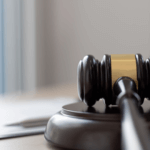
Preparing for the unexpected is essential for business owners to protect their livelihoods. Situations like natural disasters, fire, hail, theft, and vandalism all have the potential to greatly impact not only the business’s property but its revenue. One way to mitigate these frustrations is by ensuring the company has a comprehensive business interruption insurance policy in place. Having a good understanding of what’s covered under a business interruption insurance policy can help business owners discern whether or not a claim can be filed.
What is Business Interruption Insurance?
Business interruption or business income insurance is a type of insurance coverage that can help commercial property owners replace income the business lost in the event it is unable to open for an extended time following a covered loss. Business interruption coverage is often bundled into a business owner’s policy (BOP). These policies combine property, liability, and business interruption coverage for small and midsize businesses.
One of the most important things for commercial property owners to remember when purchasing business interruption coverage is that like most standard “all risks” property insurance policies, for coverage to be triggered, a physical loss or damage must be present. Meaning that if the property has to close for any other reason other than direct physical damage, business interruption coverage would not apply.
However, the physical damage requirement is not the only stipulation commercial property owners should be aware of when it comes to this specific type of insurance coverage. Business interruption policies have other requirements that must be met regarding the type of damage sustained, the type of property that is insured under the policy, and the timing of the claim. It’s also important to ensure policy limits are sufficient to cover the business’s losses of more than just a few days or even weeks in some cases. This is because following a major disaster that affects the business, it can take much more time to recover than most realize.
Some of the most important factors to consider when purchasing business interruption coverage include:
Contingent Coverage
Contingent business interruption coverage protects against loss of revenue a business suffers when a third-party supplier, distributor, or other key business it relies upon to produce a product or service suffers physical property damage. Coverage is thus “contingent” upon a loss suffered by a different business that directly impacts the covered property or any location referenced in the policy upon which the covered business depends for its success.
For example, a product distributor takes out a contingent business interruption policy, listing its manufacturer as a “Covered Location.” The manufacturer suffers a fire, and its building – and all of the products inside of it – burns down. Unfortunately for the product distributor, the products have been destroyed and are unable to be distributed, meaning the product distributor cannot generate any revenue without them.
Since the forward-thinking distributor insured against this type of loss with contingent business interruption coverage, even though the distributor itself did not suffer physical damage, the product manufacturer – a “Covered Location” under the policy – did. And this may trigger contingent business interruption coverage.
The Period of Restoration
When discussing business interruption coverage, it’s important to note that coverage does not extend for an indefinite period; it extends only within the “period of restoration.” In measuring the period of restoration, most policies are very specific as to what constitutes a beginning point and an endpoint. The beginning point is usually pretty easy to determine; the endpoint is where it can get complicated and contentious.
The period of restoration indicated in business interruption policies dictates a set length of time before which policy coverage will trigger. Typically, there is a 48- to 72-hour waiting period before the period of restoration kicks in. In standard business interruption policies, the period of restoration is limited to 30 days, although purchasing policy endorsements can extend this period.
For instance, businesses may not be able to fully reopen at the same working capacity they had before the event that triggered the business interruption coverage. When this happens, a period of indemnity endorsement can be used to extend the time needed for the covered loss period beyond the ‘theoretical’ time required to restore the property – usually a more specific timeframe of 30, 60, or 90 days.
The period of restoration is critical for commercial property owners to understand because the full operating costs remain their responsibility during that timeframe but with little to no corresponding income. Because this revenue shortfall will likely keep businesses from resuming operations as before, the period of indemnity endorsement extends this time, allowing the insured to be indemnified for the shortfall. The period of indemnity also enables a policyholder to recoup significant pre-opening expenses accrued to restore revenues to their pre-loss levels.
Policy Sublimits
A sublimit is a limitation within an insurance policy on the amount of coverage available for a specific type of loss. When it comes to business interruption claims, the use of sublimits is slightly different than under other commercial policies.
For business interruption, or “time element” losses, policies often provide coverage for loss of earnings or profits and extra expenses for an identified period resulting from a direct physical loss of or damage to the insured’s property. Sometimes, those extensions of coverage are subject to a period of restoration that effectively caps the recoverable proceeds for that coverage. So, although there might not be a specified dollar amount as a sublimit, the period of restoration acts as one.
Civil authority coverage, for example, is applied when a government body prohibits access to certain areas or businesses following a natural disaster or another large-scale event. Coverage is designed to compensate the insured for losses sustained during the time access to the businesses is prohibited by an order of a civil authority. The closures or lack of access must be due to damage to the covered property on the described premises or property adjacent to the premises as described in the insured’s policy.
Civil authority endorsements typically cover a period of either 14 or 30 consecutive days. The carrier may impose a waiting period before coverage applies; this is typically up to 72 hours. As with other business interruption coverage extensions, there might not be a specified dollar sublimit, but rather, a temporal measurement that caps coverage.
Business Interruption Insurance Coverage
For commercial property owners to ensure coverage is triggered under a business interruption policy, physical damage to the property or a contingent property nearby must be present. Physical damage typically occurs following a storm or natural weather event, fire, and/or other types of unexpected events that cause significant property damage to the physical location of the business. Once it has been determined that such damage is present, a business interruption policy will typically cover the costs associated with:
- Lost Revenue: Business interruption insurance can cover lost revenue for up to one full year. If the business is closed down temporarily and there is no way for it to make money outside of its physical location, this insurance will help keep the business afloat during this time.
- Missed Rent Payments: Business interruption insurance can help cover the cost of rent or lease payments to landlords while the business is recovering from a covered loss.
- Loan Assistance: When triggered, business interruption coverage can offer financial assistance towards any business loans that were filed before the physical damage that caused the business to shut down.
- Relocation: If it is impossible to reopen the business at its original location, business interruption coverage can be used to cover moving costs and rent payments at the new location for a limited period.
- Employee Wages: Business interruption coverage allows employers to continue to pay their staff regularly following an unexpected closure. This allows employers to retain employees while the physical business location is not in operation.
Business interruption insurance does not cover:
- Broken items resulting from a covered event or loss, such as broken glass or a damaged roof.
- Flood or earthquake damage, which is covered under separate provisions or policies.
- Undocumented income that’s not listed on the business’s financial records.
- Pandemic events, viruses, or other communicable diseases.
Commercial Property Damage Lawyers
While navigating and running a business is difficult on its own, it can be almost impossible following a devastating event that causes physical damage to the location. Although insurers will attempt to deny rightfully filed claims to avoid paying the full amount owed or paying at all, an experienced commercial property damage lawyer can help you recoup the amount you are rightfully due under your insurance policy.
At Raizner Slania LLP, we’ve successfully handled thousands of complex insurance disputes against major insurance companies and we will fight to get you the coverage you need. If you need assistance in navigating a business interruption claim for your commercial property or your claim was wrongfully denied or underpaid, we can help.


